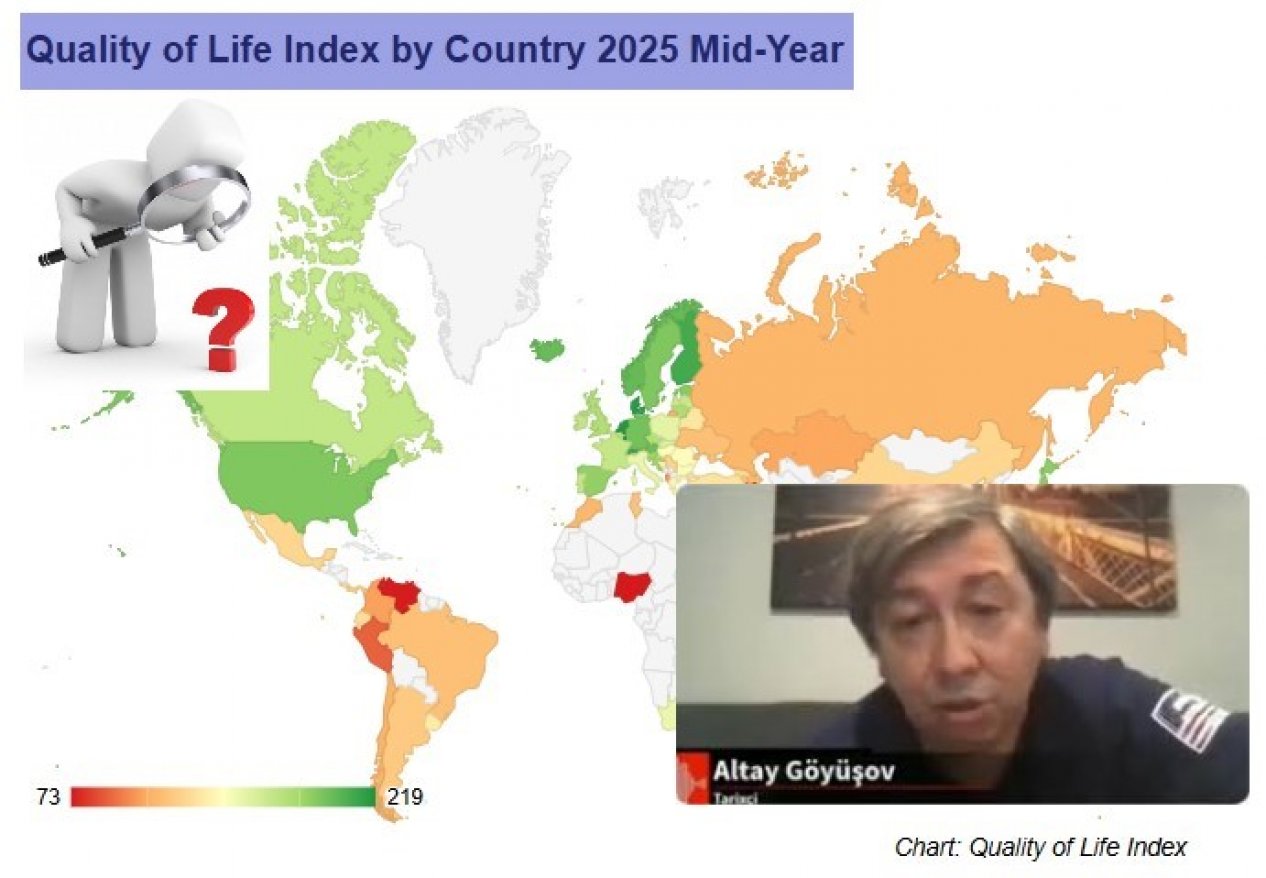
Altay Goyushov, who lives abroad, shared a post on his Facebook page portraying a low quality of life in Azerbaijan and included a link to the “BRI” platform, which he leads and where articles by Armenian authors are also published.
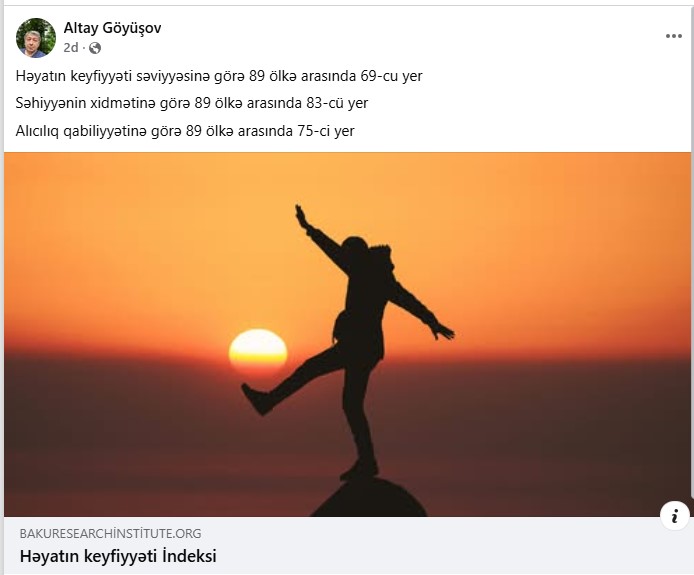
“Faktyoxla” (factchecking.az) conducted an analysis of the infographic disseminated by Altay Goyushov and the website he oversees, which claimed that Azerbaijan belongs to the group of countries with a low quality of life based on relevant normative indicators.
Upon visiting the website shared by Goyushov, one finds the so-called “infographic” accompanied by a link to the PDF report located directly beneath it.

When attempting to download the ‘PDF’ file, it opens as a single-page document containing only one sentence - the title of the topic.
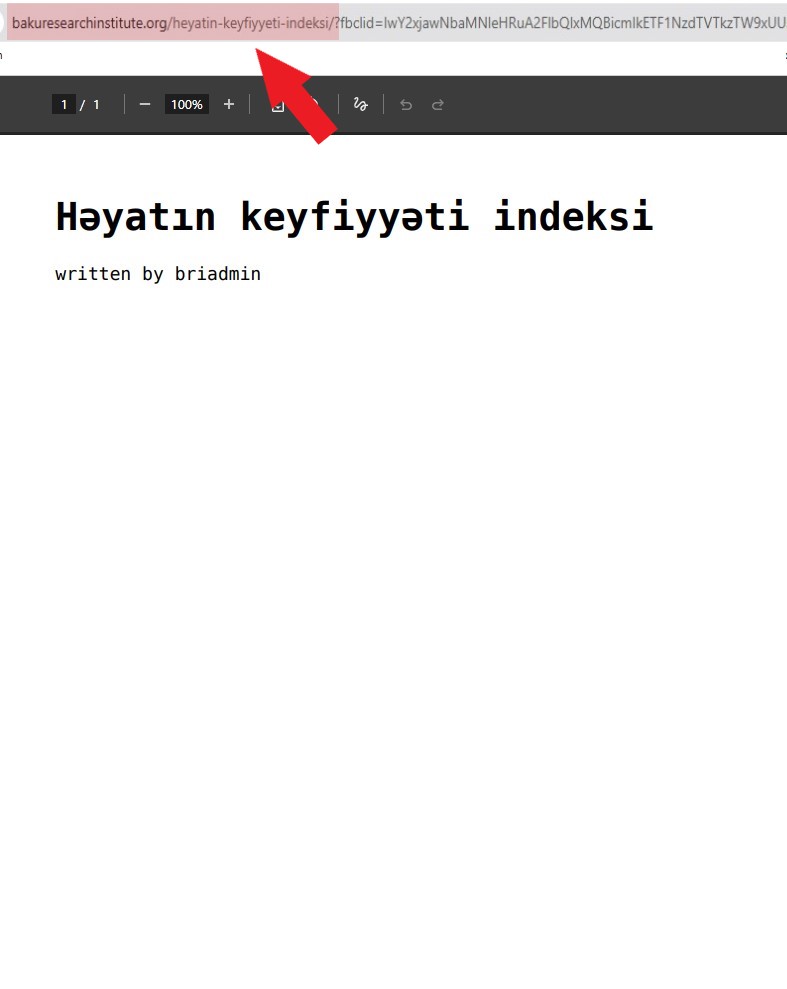
When we sought to identify the source of the information shared by A. Goyushov - who presents himself as a political analyst and website administrator - it took considerable effort. After a thorough search, we finally found the word ‘Numbeo’ tucked into a corner of the so-called one-page “infographic” banner he had posted. To spare readers the same effort, we have highlighted the word “source” and are presenting the image exactly as Altay Goyushov originally shared it, without any resizing or modification.
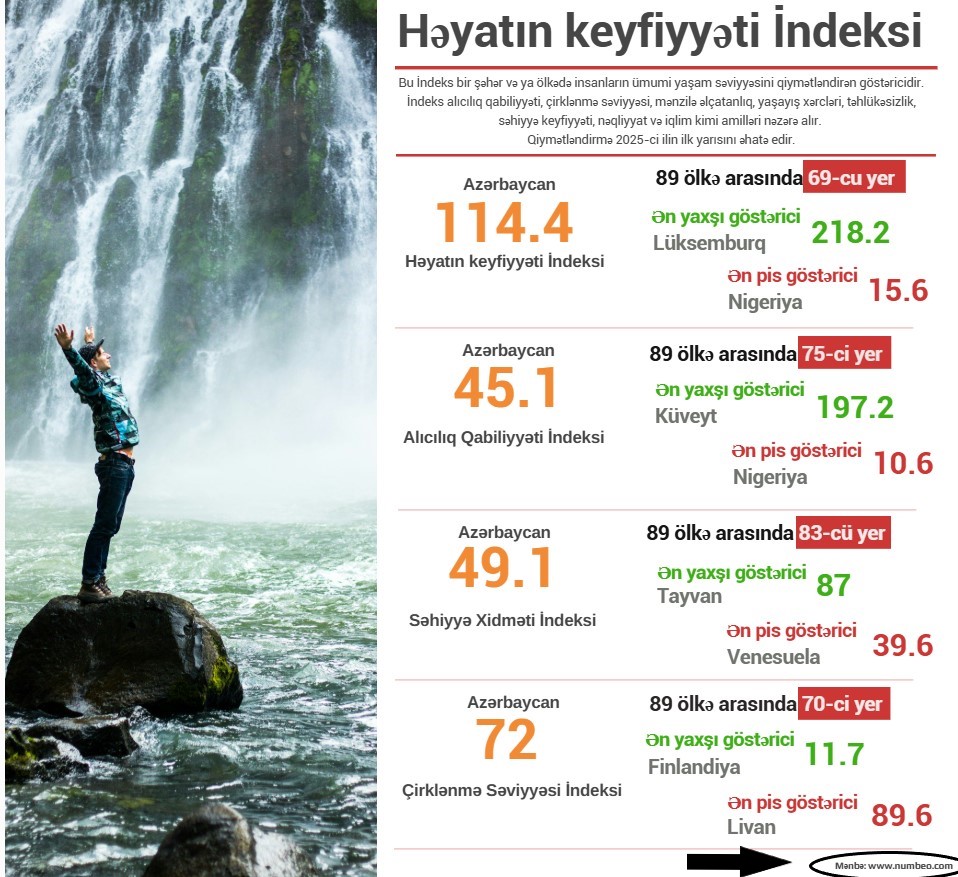
So, it becomes clear that the figures presented by A. Goyushov were taken from the “Quality of Life Index” published by the online research platform Numbeo. This so-called “research center,” which has consistently disseminated biased information about Azerbaijan (a matter we will address separately - ed.), ranked Azerbaijan 69th in the world in its latest report, with a score of 114.4 points.

For reference, it should be noted that the “Quality of Life Index” (QLI) is one of the key indicators used to evaluate the socio-economic, healthcare, educational, and political conditions of countries worldwide. This index reflects the overall level of individual well-being, economic stability, health, and access to education within a given country.
It comprises sub-indices such as Purchasing Power, Safety, Health Care, Climate, Cost of Living, Property Price-to-Income Ratio, Pollution, and Traffic.
In addition, factors such as GDP, income levels, unemployment, inflation, poverty rate, housing conditions, infrastructure, and national economic growth are also taken into account. Overall, the QLI is structured around 36 indicators grouped into seven sub-indices.

Let us now turn to the analysis of the so-called infographic.
First, it should be emphasized that there is no single universal indicator that can accurately reflect the standard of living worldwide. The QLI report published by the Numbeo database is by no means the only metric or methodological framework for assessing living standards in any country, including Azerbaijan.
This is primarily because Numbeo does not have a professional research team capable of conducting comprehensive studies or carrying out in-depth comparative surveys. The platform compiles its index largely from virtual data obtained from various NGOs, which are not necessarily based on verified economic and social facts or reliable statistical figures.
Consequently, the index presented by Numbeo cannot accurately or comprehensively reflect the real living conditions in countries around the world.
Let us illustrate this with a concrete example.
Early this year, Numbeo published its “Safety Index by Country 2025.” This report was derived from the “Crime Index by Country 2025,” meaning that the ranking of the world’s safest countries was based solely on the crime index.
From this perspective, a country’s safety ranking should be determined directly through an analysis of its criminological situation, with such indices calculated according to the overall crime rates within each country.
However, most social media users who noticed the city rankings expressed their astonishment. For example, one user commented that it was not only surprising but even laughable that Medellín, Colombia - widely known as a center of drug trafficking - was rated as having a lower crime level than London, Paris, or Mexico City.
In a statement regarding the formation of its ranking index, the site’s staff noted that the indicators in the “safest country” or “most crime-ridden city” sections are based on information and votes provided by the site’s users. The statement adds that “the survey questions are designed to resemble those of many scientific and governmental surveys,” and that responses are scored on a scale from –2 to +2 (with –2 being the most negative evaluation and +2 the most positive).
The survey includes simplistic and methodologically dubious questions, such as “Do you consider it safe to walk in the city at night?” or “Are you worried about your car being stolen?”, which do not conform to professional survey standards.
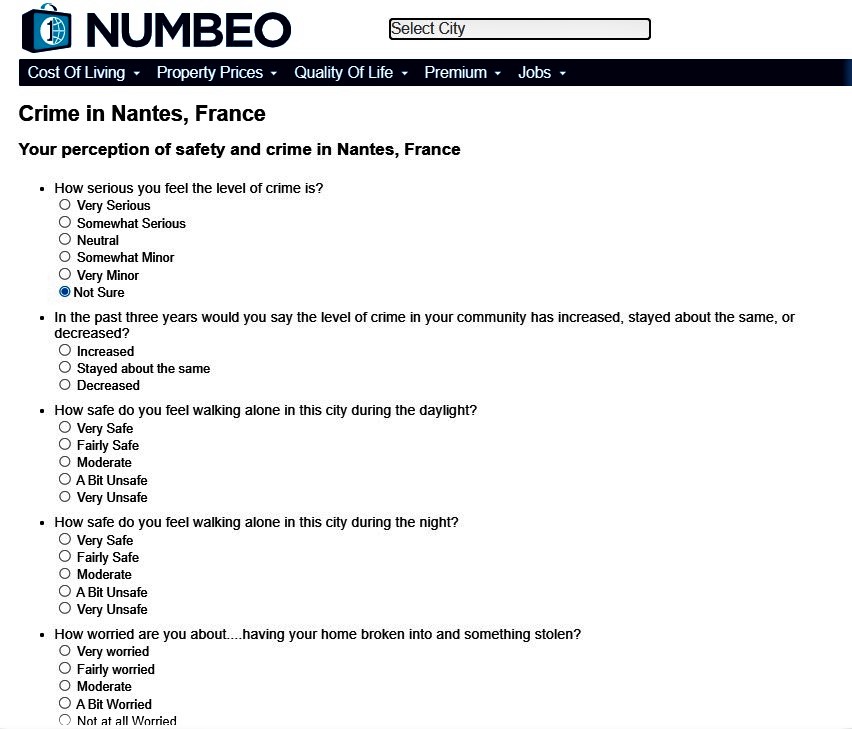
Furthermore, it is obvious evident that only a very small number of respondents participated in the survey, which is insufficient to form a reliable assessment of large cities or to compile a ranking table. For example, the rating for a metropolis like London over the past five years was based on the opinions of just 1,322 individuals. Johannesburg, the largest city in South Africa, received 833 responses, while Medellín, a provincial city in Colombia, received only 232 votes. Johannesburg appears among the lowest-rated cities in the ranking; however, experts note that the city’s actual crime indicators are significantly lower than those of surrounding provinces and suburban areas.
Social media users speculated that this was part of the site’s marketing strategy (it is likely that Altay Goyushov and his team became “victims” of this strategy - ed.). In doing so, the site both attracts a large readership and cultivates an advertising market.
Secondly, since the data from the Numbeo database are not based on official statistics, figures, or documents from the countries referenced, the index is derived from general estimates, which entirely calls its objectivity into question. As a result, countries considered significantly weaker than Azerbaijan in terms of living standards, social norms, and purchasing power - such as Ecuador, Costa Rica, Georgia, Panama, North Macedonia, Armenia, Tunisia, Ukraine, and others - are ranked higher on the scale.
Each of these countries lags behind Azerbaijan in terms of GDP, average monthly wages, average and minimum pensions, per capita national income, external debt, per capita social and healthcare expenditures, benefits and allowances, per capita education spending, and other indicators. This can be verified by accessing the World Bank (WB) database, selecting any country, and cross-checking using real figures and indicators. For example, the database provides comprehensive and detailed information on Azerbaijan’s socio-economic development indicators.
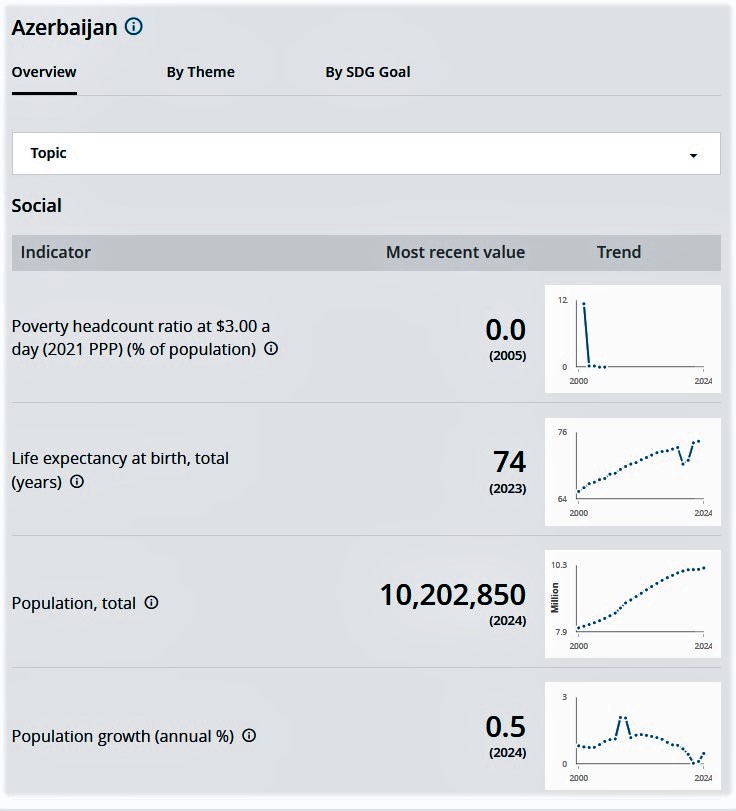
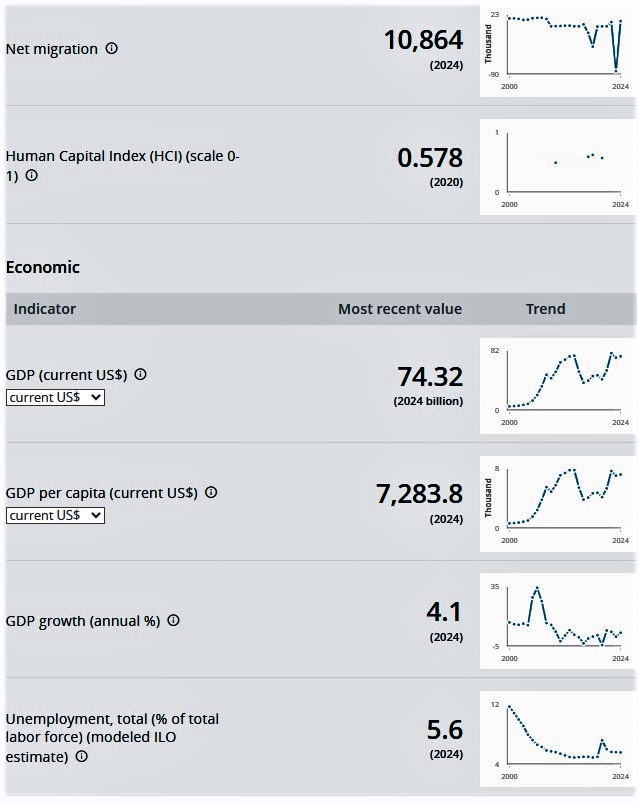
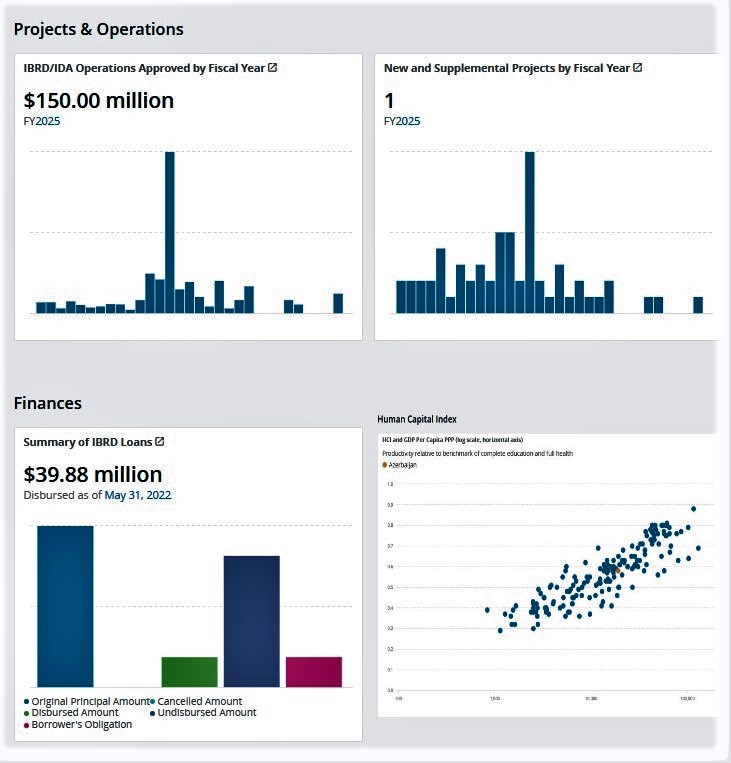
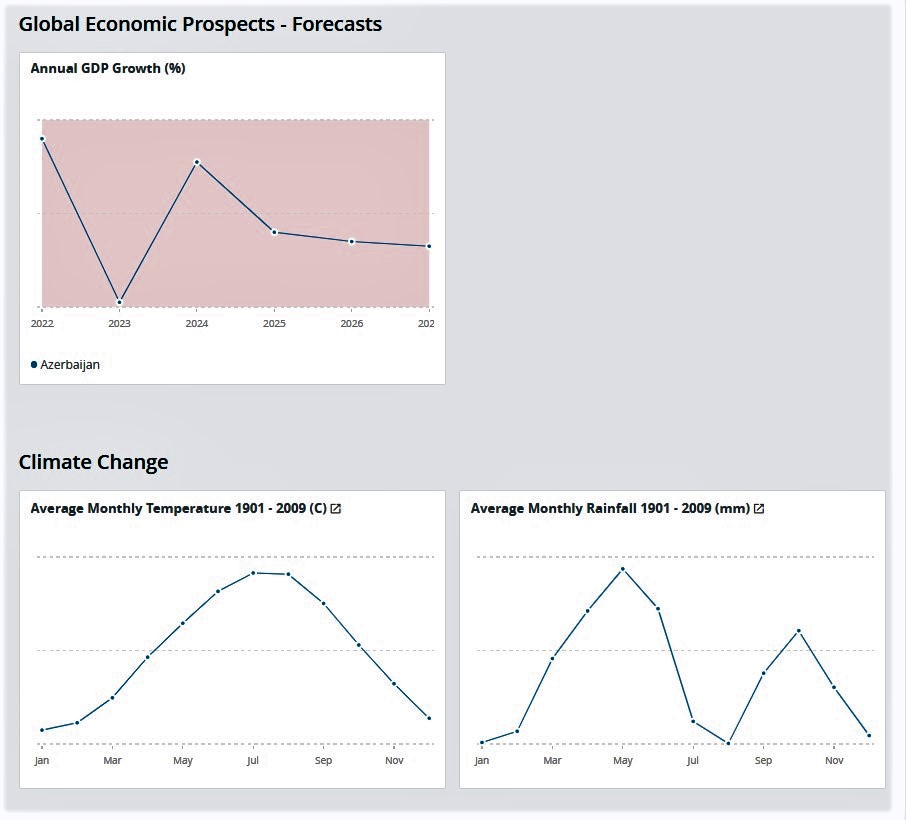
By comparing the indicators of Tunisia or Armenia in this database, one can clearly see the substantial differences in real living standards.
Other sources also allow for the examination of global rankings of countries based on education, healthcare, purchasing power, per capita national income, and additional social indicators, with particular attention to the rankings of the poorest and lower-middle-income countries.
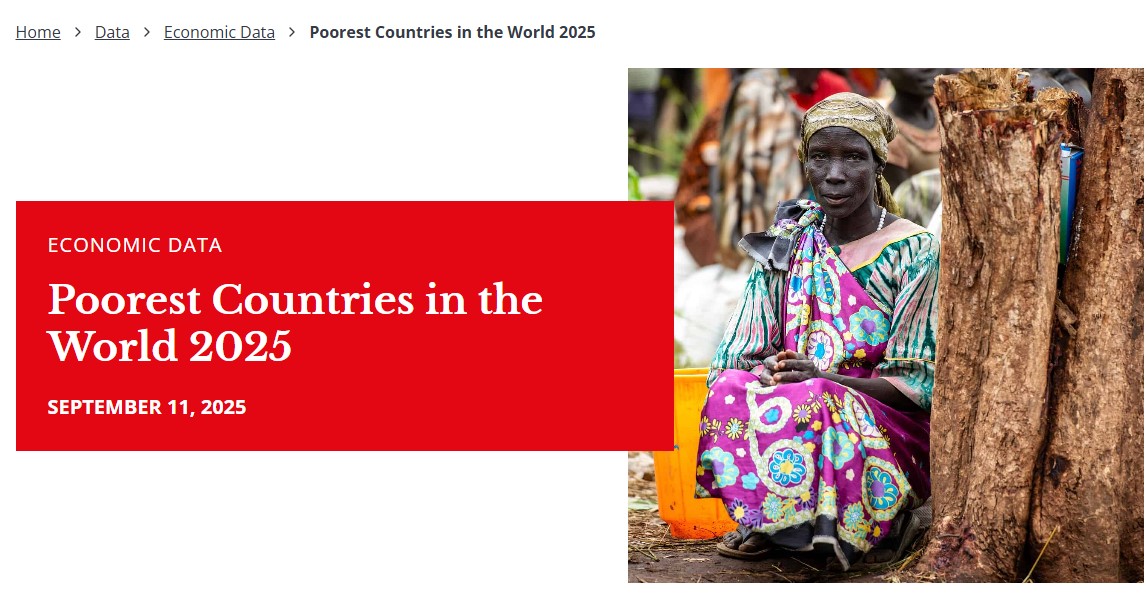
This ranking scale ostensibly reflects the situation. However, it should be noted that some countries listed in the Numbeo report as having a higher quality of life than Azerbaijan are classified in other global rankings as “poor” or even “suffering from extreme poverty.”
Let us also examine other contradictory aspects of the current Numbeo report.
In the organization’s Purchasing Power Index section, countries such as Belize - ranked 184th in terms of GDP and considered one of the world’s poorest nations - as well as Namibia, Botswana, the Fiji Islands, Iraq, Guyana, Libya, Palestine, Trinidad and Tobago, and other nations with weak social indicators, are portrayed as having higher purchasing power parity than Azerbaijan. This clearly casts doubt on the accuracy and fairness of the report.
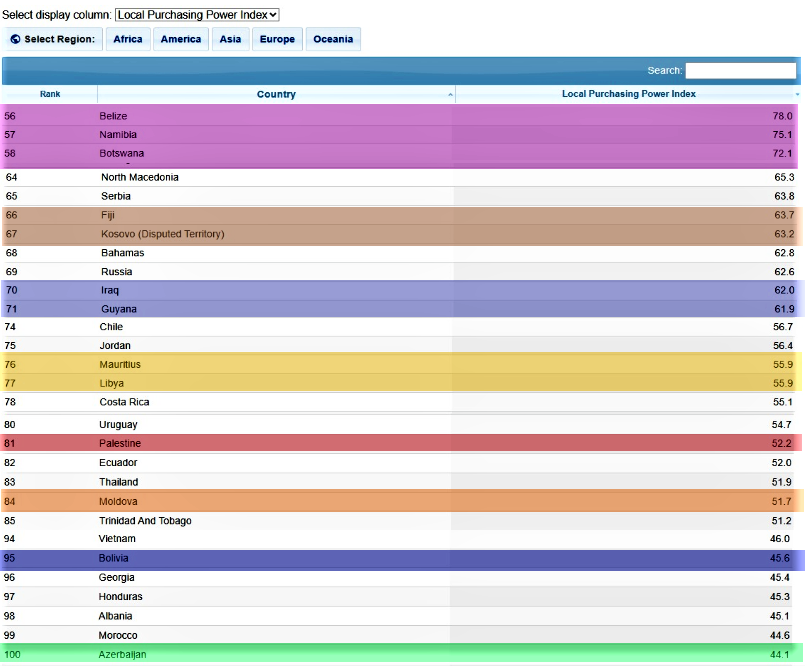
Similarly, in Numbeo’s Cost of Living Index sub-index, the rankings and classifications of countries appear entirely misleading. For instance, among the top 50 countries in this sub-index are island and peninsula nations such as Trinidad and Tobago, Puerto Rico, Papua New Guinea, and the Isle of Man, many of which rely heavily on aid and subsidies from international financial organizations.
Even more strikingly, Palestine is ranked 61st, Hungary 63rd, Saudi Arabia 67th, Kuwait 71st, Bulgaria 75th, and Turkiye 79th.
Another glaring misrepresentation appears in Numbeo’s report, “Safest Countries in the World, 2025,” which evaluates life safety and its contributing factors across various nations. Once again, the country rankings are deliberately distorted. For instance, Rwanda, Brunei, and Israel are portrayed as safer and more stable than Turkiye. Likewise, Palestine is ranked as more secure and stable than Albania, India, Moldova, Kazakhstan, Canada, the United States, the United Kingdom, New Zealand, and several other countries.
It is particularly striking that Armenia outranks many countries generally considered stable and secure, including Japan, in this ranking.
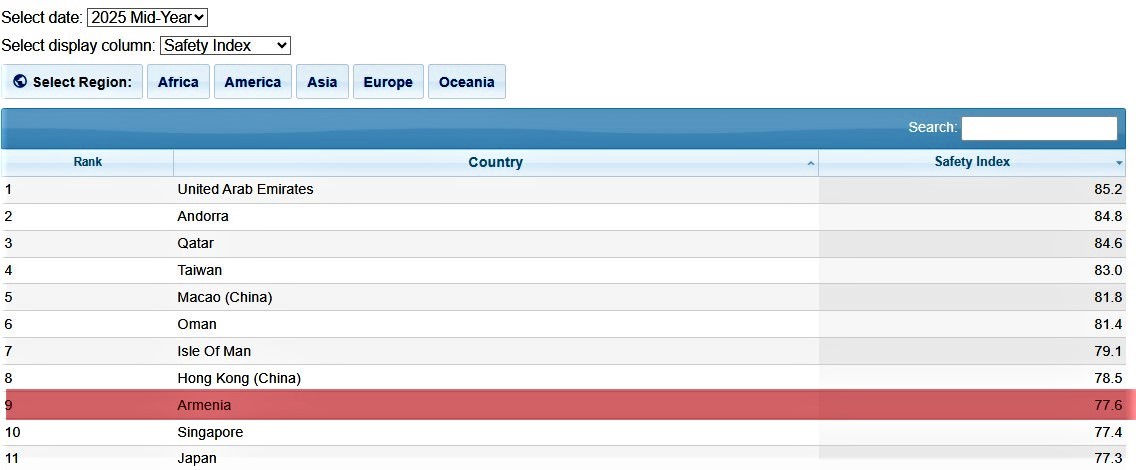
It is well known that numerous measurement tools and institutions exist to assess countries’ socio-economic welfare, living standards, and other social indicators. In this context, the Numbeo database lags significantly behind these established research institutions in terms of methodology, and the index it presents appears largely unreliable compared with those produced by major, leading organizations.
For example, the Global Social Progress Index, published by the U.S.-based organization Social Progress Imperative, is distinguished by its comprehensive approach and rigorous assessment of societal well-being. By focusing exclusively on the non-economic aspects of social performance, the index provides actionable insights for 170 countries, identifying areas of need and opportunities for improvement.
The report reveals that many countries in Asia, Africa, Latin America, and the Middle and Near East - which Numbeo ranks as having a higher quality of life than Azerbaijan - actually occupy the bottom positions in education, healthcare, social protection, material provisions, and other social indicators. In other words, the Social Progress Imperative report clearly shows that Numbeo’s quality-of-life index is unreliable and lacks objectivity, misrepresenting countries’ actual well-being on the global stage.
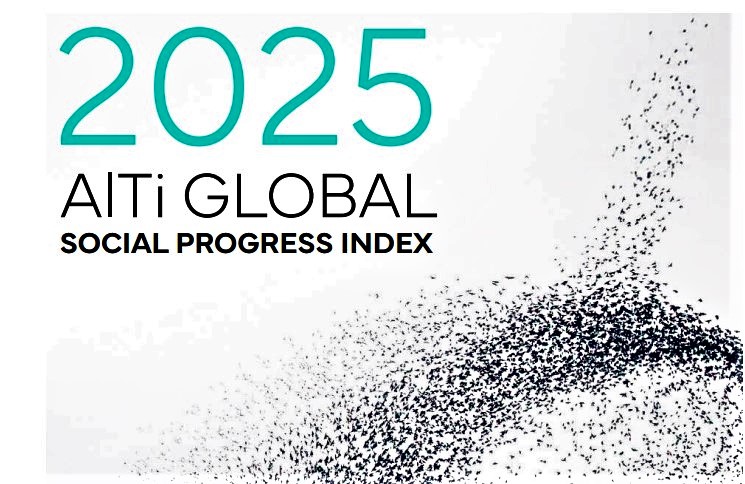
Since 1990, the United Nations has used the Human Development Index (HDI) to study and compare living conditions across countries. The HDI is based on three key components:
- Gross Domestic Product per capita
- Life expectancy at birth
- Education level
In Azerbaijan, measures implemented over the past five years to improve living standards have been reflected in a corresponding rise in the country’s HDI ranking. Sources: source1, source2

According to United Nations experts, Azerbaijan’s economic growth is on a path of sustainable development, driven by diversification and innovation, which is expected to further improve living standards and social equity.
An increasing number of people are projected to benefit from enhanced health and well-being, with broader access to universal health coverage. Moreover, the country’s safety indicators remain satisfactory. In Baku, serious crimes are rare, and only minor offenses, such as pickpocketing, are occasionally reported. Azerbaijan’s capital and largest city, Baku, climbed 58 places in the 2025 Oxford Global Cities Index, ranking 346th. This improvement reflects positive developments in the city’s economy, human capital, quality of life, and governance.
A positive outlook is also noted regarding Azerbaijan’s economic prospects. The United Nations considers that, thanks to the government’s focus on diversification and investment, the country’s economic outlook remains favorable. [Reference]
Among the institutions assessing quality-of-life standards worldwide is the IQ Ranking of World Countries, which measures social development and intellectual capacity. This index is regarded as an indicator of a country’s opportunities and capabilities, closely linked to its education system, socio-economic development, and cultural environment. The main factors influencing IQ scores include access to quality education, socio-economic conditions, cultural traditions, and genetic factors. In principle, the IQ index can be considered comparable to the QLI in terms of research parameters.
According to the 2025 report, the countries with the highest average IQ scores are China (107.19 points), South Korea (106.43 points), and Japan (106.4 points). Azerbaijan ranks 48th in the 2025 report with an IQ score of 98.71, reflecting an increase of 2.05 points compared to the previous year.

One of the key research methodologies used to assess the socio-economic development of countries is the evaluation of economic efficiency and social equity.
According to the World Bank’s methodological framework on these indicators, Azerbaijan maintains the most stable position in the region. Among the world’s leading economic research reports are those analyzing countries’ sustainable development, income-generating potential, and attractiveness for investment and business.
In its World Economic Situation and Prospects 2025 report, the United Nations classifies Azerbaijan among the countries demonstrating stable growth dynamics and sustainable development compared with most regional states. UN experts note that, alongside GDP growth, inflation in Azerbaijan is expected to remain stable while continuing to support positive social indicators. Source: World Trade Scanner
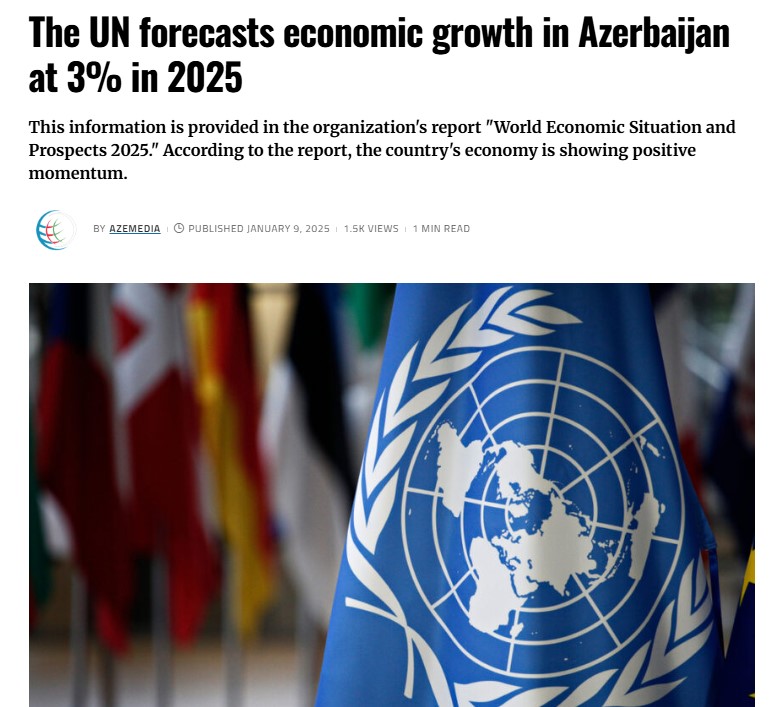
In the World Development Report (WDR) prepared by the World Bank, Azerbaijan is classified as a middle-income country, recognized for promoting investment and innovation, advancing global technologies, and fostering industrial development. Source: openknowledge.worldbank
Another key factor is the evaluation of the economy’s income-generating potential in terms of innovation and investment attractiveness. According to the International Monetary Fund (IMF) 2024 report on the global investment climate, Azerbaijan ranks among the top-performing countries. It holds the seventh position worldwide in terms of foreign direct investment (FDI) volume and is listed among the 50 largest destinations for FDI globally. Source: ccfaexpo
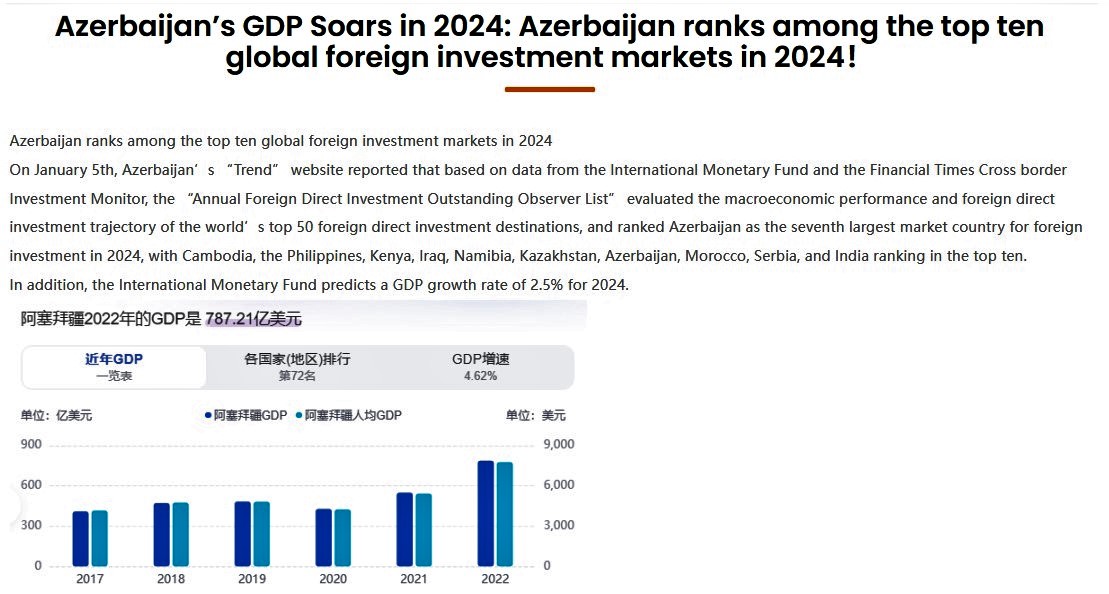
Azerbaijan’s rising international investment attractiveness is also reflected in the reports of major rating agencies, including Standard & Poor’s, Moody’s, and Fitch Ratings.
In 2025, Fitch Ratings upgraded Azerbaijan’s long-term foreign currency rating by one notch to BBB–, granting the country an investment-grade rating. Source: fitchratings
Moody’s raised Azerbaijan’s sovereign credit rating from Ba1 to Baa3 (investment grade), while maintaining a positive outlook.
Standard & Poor’s confirmed Azerbaijan’s long-term credit rating at BB+ with a stable outlook. Source: spglobal/ratings
Finally, some context is necessary regarding the misleading rankings published by Numbeo.
Note: Numbeo is a crowdsourcing company that collects databases on “consumer prices,” the “real estate market,” and “quality of life” in various countries. Founded in 2009 by Mladen Adamović, a former Google employee, the platform’s methodology and reliability are widely questioned.

Since 2012, Numbeo has been incorporated as NUMBEO DOO Beograd-Palilula LLC, led by Mladen Adamović. Adamović has stated that the site’s revenue is derived from advertising and API subscriptions.
Crowdsourcing is an online business model that essentially “outsources tasks to the crowd” via the Internet.
Open sources indicate that Numbeo’s surveys can be completed and modified multiple times by any user. In such cases, the site’s staff do not verify, edit, or correct the submitted information.
Additionally, Numbeo’s team manually collects data from company websites - which may include advertisers, without restriction - and from official sources every six months. They then calculate an average between the initial and latest data points and publish the results.

It should be emphasized that the ranking presented in the site’s Crime Index section has faced sharp criticism from experts. A 2021 article published by France Press in its factchecking section, titled “Be Cautious of the Ranking of Europe’s Most Criminal Cities,” highlights this concern. This article is by no means the only source exposing the subjectivity inherent in Numbeo’s survey-based methodology.
One illustrative example occurred in 2017: Lund, Sweden - widely recognized as one of the world’s cities with the lowest crime rates - was listed by Numbeo as the most crime-ridden city. The individual cited as the “culprit” was the Swedish citizen Linus Trulsson.
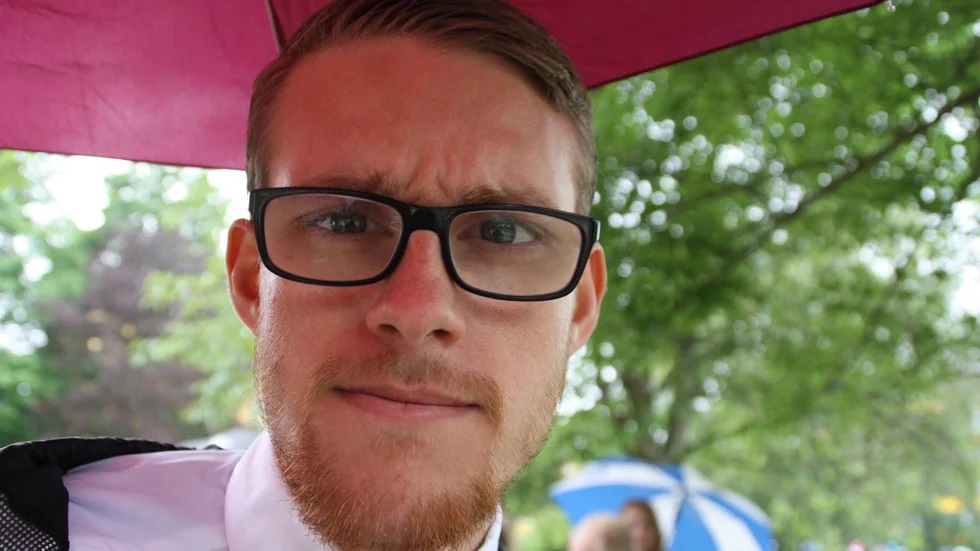
How did this happen? Linus Trulsson deliberately submitted negative ratings for his hometown, Lund, on a daily basis to expose the flaws in Numbeo’s ranking methodology. Consequently, Lund - a city with very low crime rates - surpassed cities such as Caracas (Venezuela) and San Pedro-Sula (Honduras), topping Numbeo’s list of the world’s “most dangerous cities.” Trulsson explained to the media:
“Numbeo’s ranking is simply an aggregation of opinions from ordinary users; it is not based on statistics. Anyone, anywhere in the world, can anonymously tamper with these ranking multiple times a day. Just as I did, I was able to turn Lund into the most crime-ridden city in a single day."
A similar case occurred with Bradford, United Kingdom. In 2022, Numbeo’s ranking of the “most dangerous crime-ridden cities” placed Bradford in top position, sparking widespread debate and going viral on social media.
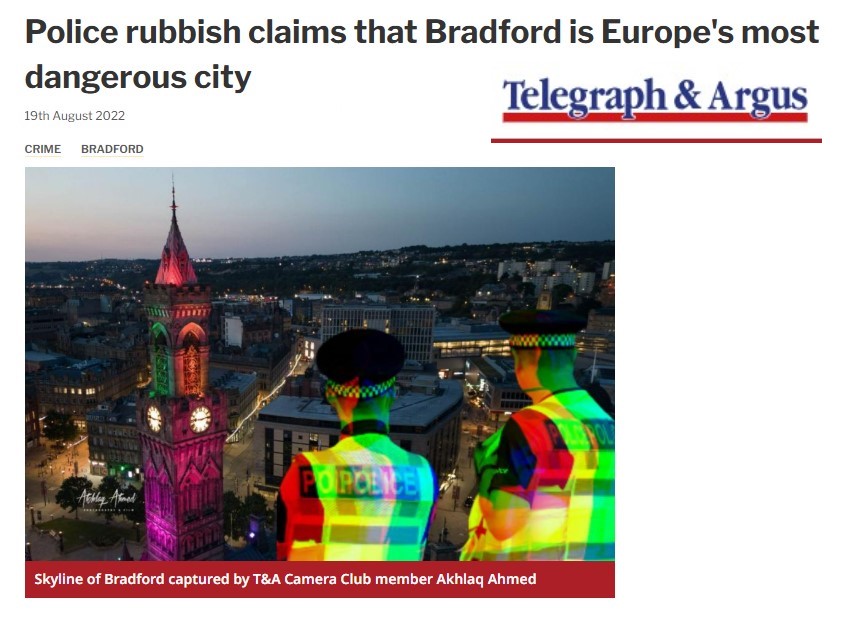
Placing another UK city, Coventry, at number two on the “most dangerous cities” list caused outrage both in the media and by the police. The police issued repeated statements, while the media flooded the agenda with debates, interviews, and investigations.
Although it is not possible to determine exactly who was behind the sustained activity that placed these two British cities at the top of the “most crime-ridden” rankings, there is little doubt that the Swedish method of manipulation was at work in this case as well.
In 2022, sociologist David Weinberger described Numbeo’s methodology as useless and meaningless from the perspective of sociological science.
Experts who responded to fact-checkers from Agence France‑Presse regarding the reliability of Numbeo’s crime statistics consider the site’s information to be false and biased.
Thus, in the majority of numerous global reports and methodological measurement frameworks for quality-of-life indices, Azerbaijan’s position is assessed considerably more favorably. The aggregate results of those indices support the conclusion that Azerbaijan is far superior in quality-of-life norms to most of the countries that Numbeo portrays as better.
Against this background, Altay Goyushov’s attempt to create a negative impression of Azerbaijan by relying on Numbeo’s flawed methodology may be regarded as partisan and opportunistic — tantamount to criticizing the country by citing fabricated ranking tables.




















